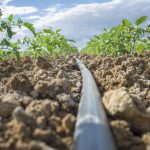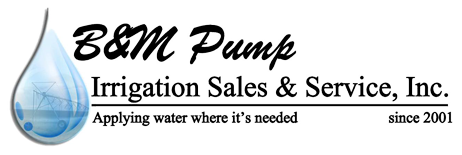Irrigation Tips For Spring 2024

Assessing Water Needs:
Before diving into irrigation practices, it is important to assess the water needs of your plants. Different plants have varying water requirements based on the stage of growth, soil type, weather conditions, and other factors. Some plants may need frequent watering, while others may require less water to thrive. By understanding the specific water needs of your plants, you can tailor your irrigation practices to provide the right amount of water without causing water stress or wastage.
Timing of Watering:
One key irrigation tip for the spring season is to water your plants at the right time of day. Early morning is often considered the best time for watering, as it allows plants to absorb moisture before the heat of the day sets in. Watering in the morning also reduces the risk of evaporation, ensuring that plants receive an adequate amount of water. Avoid watering in the heat of the day, as this can lead to water loss through evaporation and may scorch plants due to intense sunlight.
Monitoring Soil Moisture:
Regularly monitoring soil moisture is essential for effective irrigation. Overwatering can lead to waterlogged soil and root rot, while underwatering can result in stunted growth and wilting plants. Use a moisture meter or simply stick your finger into the soil to gauge its moisture levels. Ideally, the soil should be moist but not waterlogged. By monitoring soil moisture regularly, you can adjust your watering schedule accordingly to meet the needs of your plants.
Choosing the Right Irrigation Method:
There are various irrigation methods available to gardeners and farmers, each with its own advantages and limitations. The choice of irrigation method depends on factors such as the size of the garden or field, water availability, soil type, and plant requirements. Some common irrigation methods include drip irrigation, sprinkler irrigation, and soaker hoses. Drip irrigation is ideal for delivering water directly to the root zone of plants, while sprinkler irrigation is suitable for covering larger areas. Choose the irrigation method that best suits your garden or farm to ensure efficient water distribution.
Mulching:
Mulching is an effective practice for conserving soil moisture and reducing water evaporation. Adding a layer of organic mulch, such as straw, wood chips, or leaves, around plants helps retain moisture in the soil and regulates soil temperature. Mulching also suppresses weed growth, which can compete with plants for water and nutrients. By mulching your garden or farm beds in the spring, you can reduce the frequency of irrigation and promote healthy plant growth throughout the season.
Rainwater Harvesting:
Harnessing rainwater for irrigation is a sustainable and cost-effective practice that can supplement your water supply in the spring. Set up rain barrels or a rainwater collection system to capture rainfall from your roof and direct it to your garden or field. Rainwater is free of chemicals and provides plants with natural nutrients that promote growth. By incorporating rainwater harvesting into your irrigation system, you can reduce your reliance on municipal water sources and promote eco-friendly gardening practices.
Regular Maintenance:
Regular maintenance of irrigation systems is essential for their proper functioning and longevity. Check irrigation equipment regularly for leaks, clogs, or other issues that may affect water distribution. Clean and adjust sprinklers, emitters, or hoses as needed to ensure uniform water coverage. Replace worn-out components and perform routine maintenance tasks to keep your irrigation system in optimal condition. By maintaining your irrigation system, you can prevent water waste and ensure that plants receive the water they need to thrive.
Summary:
As you prepare for the spring season in 2024, implementing proper irrigation practices is crucial for the health and success of your plants. By assessing water needs, timing watering, monitoring soil moisture, choosing the right irrigation method, mulching, incorporating rainwater harvesting, and performing regular maintenance, you can optimize your irrigation efforts and promote robust plant growth. With these irrigation tips in mind, you can nurture your garden or farm through the spring season and beyond, reaping the rewards of bountiful harvests and flourishing plants.
Need an Irrigation System Company in Seminole, TX?
Welcome to B&M Pump Irrigation Sales & Service, Inc.! We are your professional irrigation specialist! Our typical services include complete pump service, water well service, system design, and pivot systems. We deliver personal service and reliability to our customers in Texas, Oklahoma, New Mexico, and Arizona. No matter where you are in the southwest, B&M Pump Irrigation Sales & Service, Inc., is a name you can trust. We strive to educate owners and operators on making pumps and motors last longer and work more efficiently. We sell good quality products at a fair price and stand behind the products we sell. Give us a call today to speak with one of our service experts today!
Categorised in: Irrigation
